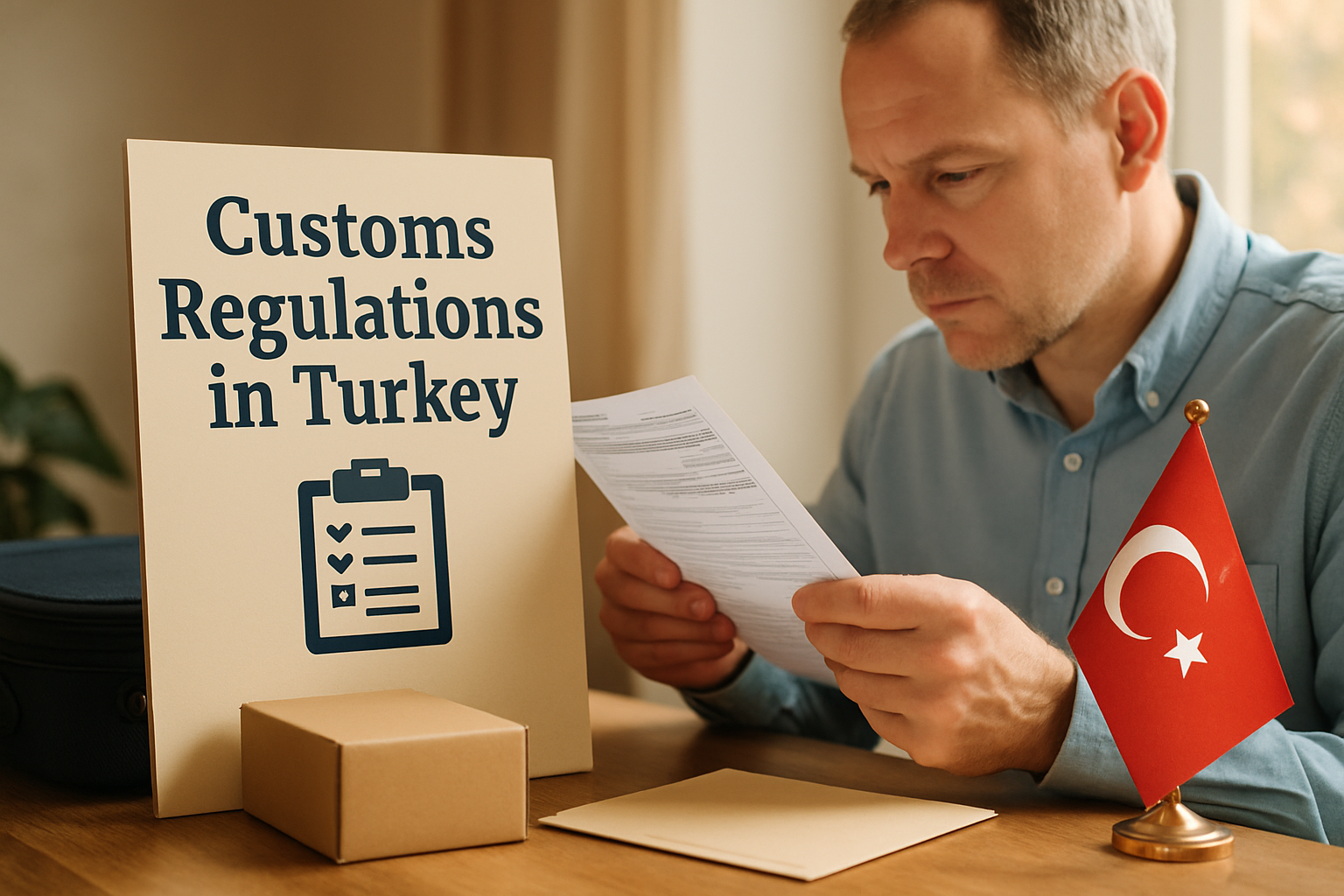Importing Goods: Customs Regulations in Turkey

Navigating life as an expat in Turkey brings exciting opportunities, yet also logistical challenges. One of the most important is understanding how to import personal belongings or business goods through Turkish customs. While the process may seem intimidating at first, planning ahead and knowing the regulations can streamline your experience. Here’s a practical guide to Turkish customs regulations based on concerns most expats encounter when importing goods.
Understanding Turkish Customs: Why It Matters for Expats
Whether relocating for work, study, or new beginnings, expats often need to transport personal property and valuables into Turkey. The customs process is designed to safeguard the economy and public safety. Failing to comply can lead to fines or even confiscation of items.
- Regulations depend on residency status and item type
- Strict limits exist for duty-free allowances
- Customs requires full, accurate item declarations
- Prohibited and restricted items lists are enforced
- Non-compliance may delay clearance and increase costs
For example, an expat bringing electronics or luxury watches above the allowance amount will need to pay customs duties. Having receipts and properly itemized packing lists reduces stress at entry points.
Personal Belongings: What You Can Bring Duty-Free
Turkish regulations allow expats to import certain personal effects free of duty, provided these items are for personal use and not resale. These include essential household goods, clothing, and limited amounts of electronics. When relocating, you can import your used items within six months of your official entry date as long as you provide required documentation.
- One each of major appliances (TV, laptop, camera)
- Personal clothing and accessories in reasonable quantities
- Household goods such as linens and kitchenware
- Up to 1,500 Euros worth of new goods in total value
- Medicines for personal use, with prescription
Suppose a family moves for a new job in Istanbul. As long as they itemize their familiar bedding and kitchen gadgets, and provide residency paperwork, these generally pass as duty-free. Electronics and valuable items should align with customs thresholds, avoiding the need to pay extra taxes.
Prohibited and Restricted Items: Key Rules to Know
Turkey upholds strict regulations on prohibited and controlled imports for safety and security. As an expat, screening items ahead of time saves delays and prevents legal issues.
- Firearms and ammunition (heavily regulated, permits required)
- Unlicensed pharmaceuticals and narcotics
- Radio equipment and drones (special permits often needed)
- Plants, plant products, and foodstuffs (check quarantine laws)
- Protected cultural artifacts, antiques, and precious metals
Someone moving from abroad with personal food favorites or herbal products may encounter difficulties at customs. Checking the Ministry of Trade’s up-to-date lists ensures you only pack admissible items.
Required Documentation for Smooth Customs Clearance
Proper paperwork is your best asset when importing goods. Turkish customs officers rely on clear, complete documentation to verify shipments. Here’s what you need for both unaccompanied and accompanied goods:
- Passport with relevant visa or residence permit
- Inventory of goods (detailed, with values stated)
- Shipping documents (Bill of Lading or Air Waybill)
- Entry/exit records and proof of address in Turkey
- Receipts for high-value items and electronics
For example, an expat importing household goods will be asked for an itemized list, supporting invoices, and address proof. Having everything ready speeds up the process and avoids last-minute costs.
Tips for Hassle-Free Importing: Make Your Move Easier
Many expats have found that preparation is the key to a stress-free customs experience. Use these tips to streamline your relocation or shipment:
- Contact a reputable international moving company familiar with Turkish customs
- Do not ship prohibited or restricted items unless you have permits
- Double-check duty-free allowances before packing valuables
- Keep digital and paper copies of all shipping, inventory, and personal documents
- Stay updated on regulatory changes through official government portals
For instance, many expats find success sending non-essential items separately and traveling with just personal essentials. Having an agent or customs broker can offer peace of mind if you are moving a large volume of goods.
Moving to a new country is a major milestone. Handling customs with care ensures your transition to Turkey starts off smoothly. When in doubt, research regulations, organize paperwork, and seek expert guidance for a confident new beginning abroad.
